Testing with Synthetic Dataset Libraries
If you’d like to test and learn within clean rooms before connecting your real data, you can access a standard set of synthetic datasets resembling typical publisher and advertiser datasets.
These datasets match the schemas required to participate in LiveRamp’s basic Publisher Clean Room offerings, but can be used for a variety of use cases to give you a sense of how to use clean rooms with a risk-free approach on synthetic data:
Learning how to set up data connections in your organization
Developing and executing questions
Testing questions prior to provisioning them to partner clean rooms
Understanding how data connections and question runs work within clean rooms
Overall Setup Steps
To utilize the synthetic dataset libraries, perform the following steps:
Set up the desired data connections:
The Publisher Synthetic Dataset Library contains the following datasets:
Synthetic Publisher AdLogs Data
Synthetic Publisher RampID Mapping Data
Synthetic Publisher Audience Data
The Advertiser Synthetic Dataset Library contains the following datasets:
Synthetic Advertiser CRM Data
Synthetic Advertiser Transactions Data
Synthetic Advertiser RampID Mapping Data
Synthetic Advertiser Product Dimensions Data
Synthetic Advertiser Store Dimensions Data
Provision the datasets to the relevant clean rooms
Develop or execute questions using the synthetic data
Set Up Data Connections
The first step is to set up data connections to the appropriate synthetic data libraries:
From the navigation menu, select Clean Room → Data Connections to open the Data Connections page.
From the Data Connections page, click .
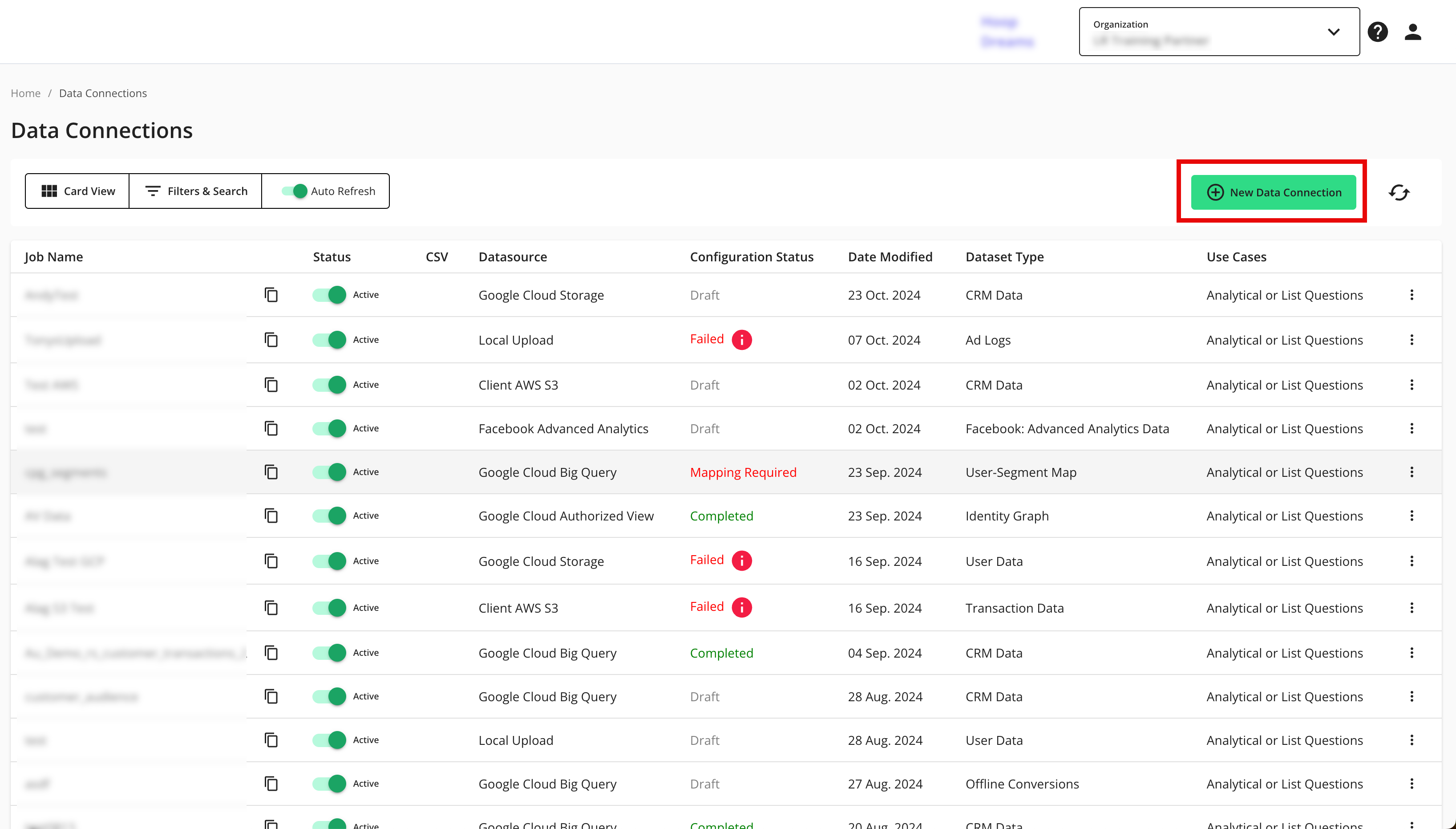
From the New Data Connection screen, select either the “Publisher Synthetic Dataset Library” tile or the “Advertiser Synthetic Dataset Library” tile.
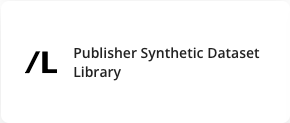
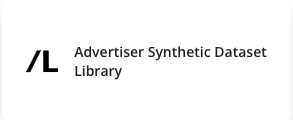
Click . The datasets in the library are displayed on the Data Connections page with a configuration status of “Verify Access”.
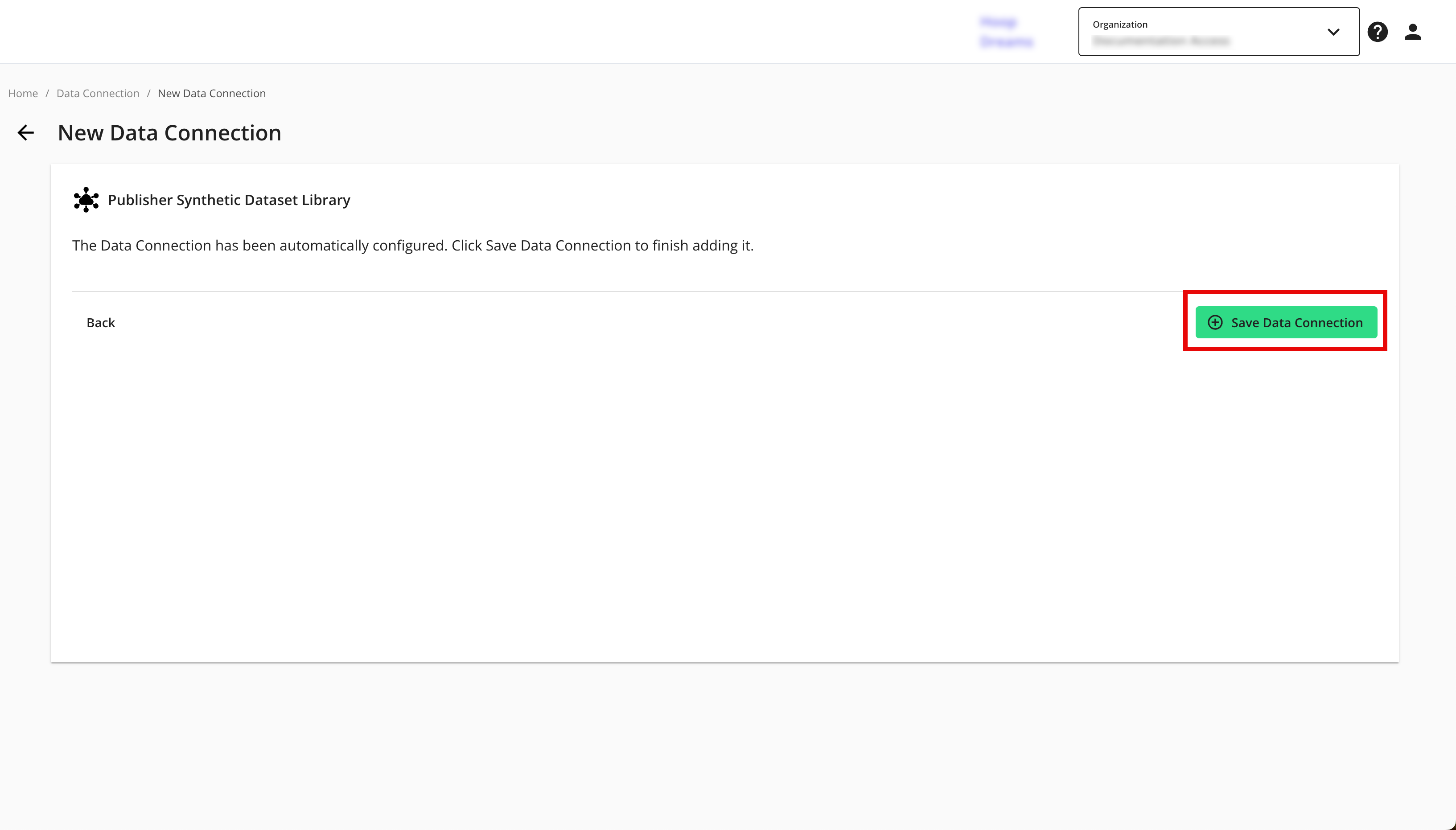

Once the data connection has been verified and the datasets in the library have a configuration status of “Mapping Required”, click the More Options menu (the three dots) in the row for one of the datasets and select Edit Mapping.

Note
If the data connections are displayed in card view, click .
You can review the Map Fields and Add Metadata steps to get a sense of how to perform the mapping process when you connect your own data, but you cannot change any schema information, as this matches the underlying data.
From the Map Fields tab, click .
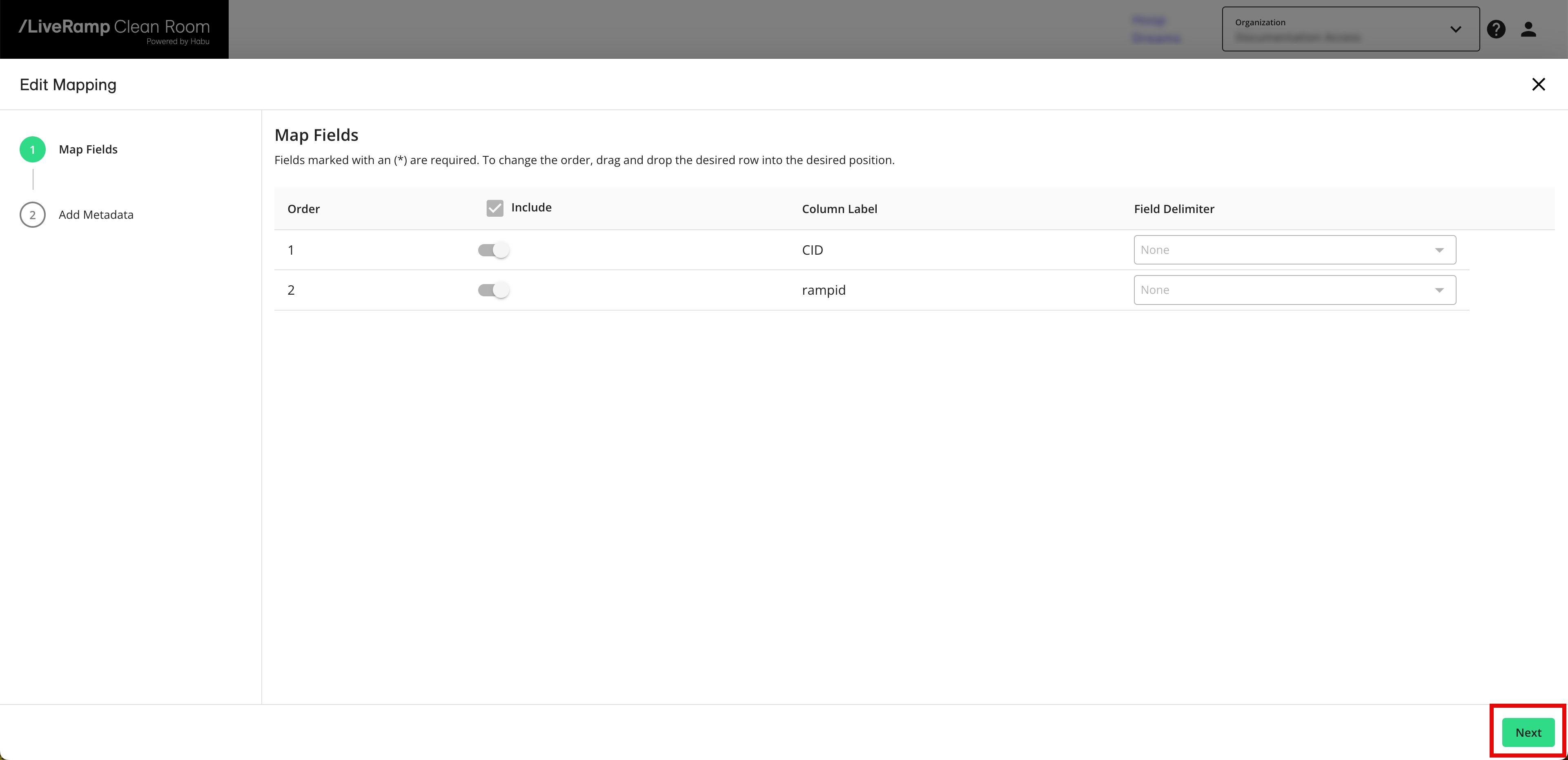
From the Add Metadata tab, click . The configuration status changes to “Completed”.
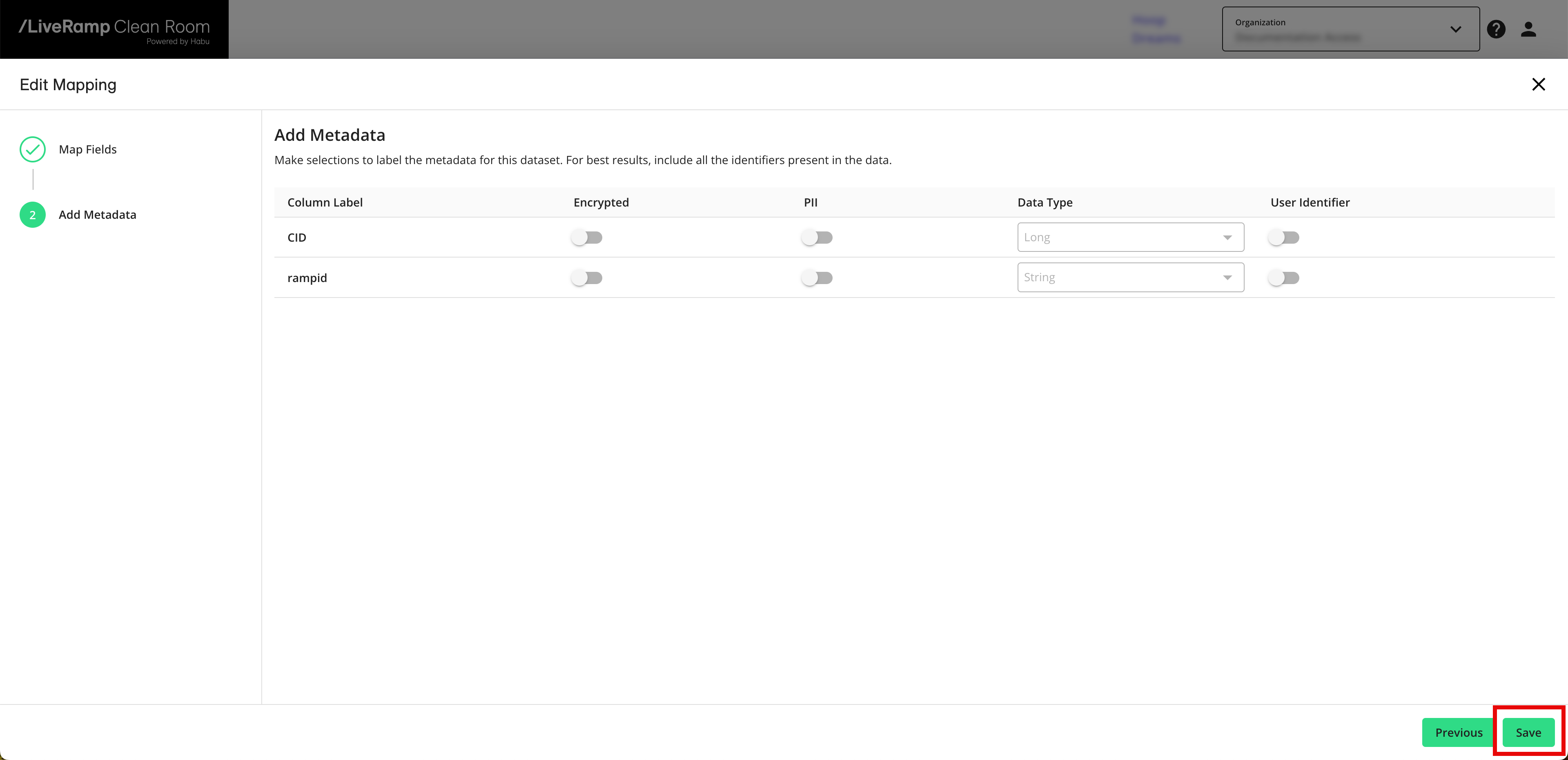
Repeat steps 5-7 for the remaining datasets in the library.
If you want to add the other dataset library, repeat steps 2-8.
You are now ready to use the datasets from these libraries in clean rooms. For more information on provisioning datasets to clean rooms see "Provision a Dataset to a Clean Room".
How to Use Synthetic Dataset Libraries
Once you’ve configured your synthetic data connections, you may leverage them in clean rooms however you wish. The most common use case for these synthetic datasets is to use them for learning how to collaborate in clean rooms via LiveRamp’s basic Publisher Clean Room offering. Otherwise, you may wish to explore how to do the following using your new synthetic data connections:
Provisioning datasets to clean rooms with filters
Writing clean room questions using provisioned synthetic datasets
Running clean room questions using provisioned synthetic datasets
These activities will get you familiar with the concepts of dataset schemas, dataset and field macros in questions, and dataset assignment to questions without the need to connect your real data.